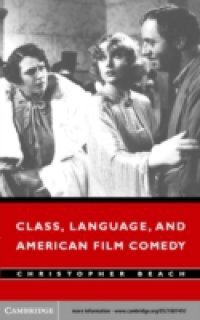This book examines the evolution of American film comedy through the lens of language and the portrayal of social class. Christopher Beach argues that class has been an important element in the development of sound comedy as a cinematic form. With the advent of sound in the late 1920s and early 1930s, filmmakers recognized that sound and narrative enlarged the semiotic and ideological potential of film. Analyzing the use of language in the films of the Marx Brothers, Frank Capra, Woody Allen and the Coen brothers, among others, Class, Language, and American Film Comedy traces the history of Hollywood from the 1930s to the present, while offering a new approach to the study of class and social relationships through linguistic analysis.

